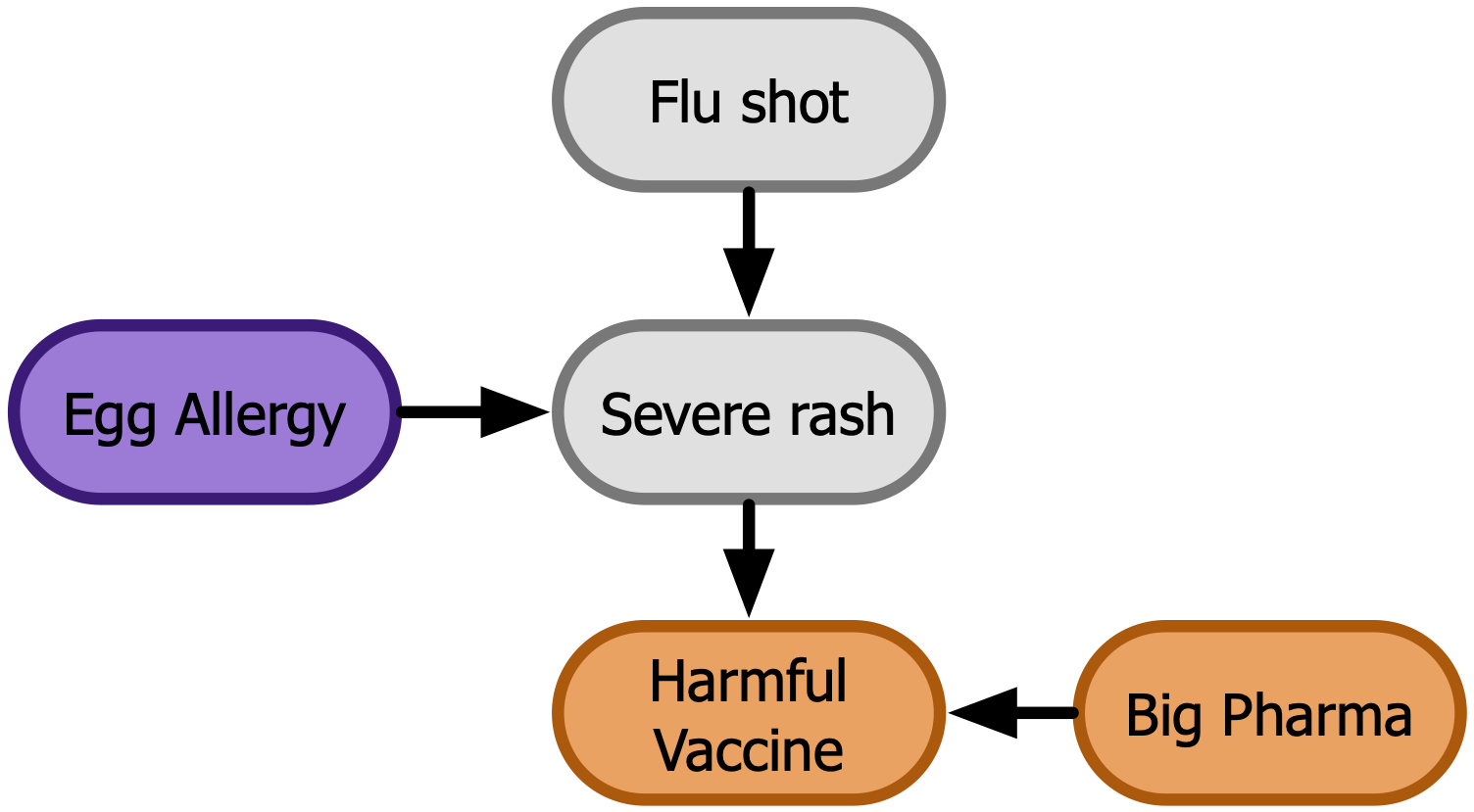The Dynamics of Misinformation
Online misinformation can influence public health attitudes, potentially costing billions of dollars and numerous lives. Online narratives are a critical object of inquiry because narratives are fundamental to how people construct socially shared belief systems, and they can be the primary means by which misinformation is spread online. It is therefore imperative that we develop a better understanding of the interplay between attitudes, misinformation, and narratives in the online social contexts.
This project spans a series of crowd-based experiments to investigate how people in online networks work together to combine misinformation to create and defend narratives about vaccination. To perform these experiments, we developed a research platform called The Story Loom to examine how people in online networks combine information to create coherent stories. The platform is an online collaborative game wherein people share pieces of information (e.g., small ‘news’ items) and try to develop a coherent story. Our studies consider three research questions:
- How does narrative coherence influence the diffusion of interdependent pieces of information?
- How do different signals about information credibility influence the creation of stories?
- How do network diversity and the content of corrective messages influence attempts to correct misinformation embedded in socially shared stories?
All of the studies in this project consider how existing public health attitudes influence the way that people in online networks process public health information. We expect that our experiments will help us extend current models of information contagion to account for the fact that individual pieces of information to which individuals are exposed depend on one another as well as the background knowledge, beliefs, and attitudes of receivers. Studies will also consider the impact of designed social signals, such as the number of ‘likes’ a post receives, and pre-existing attitudes interact.
Research Products
- Introne, J., Korsunska, A., Krsova, L. and Zhang, Z. 2020. Mapping the Narrative Ecosystem of Conspiracy Theories in Online Anti-vaccination Discussions. International Conference on Social Media and Society (Toronto, ON, Canada, Jul. 2020), 184–192. [PDF].
Funding
This project is generously funded by the National Science Foundation, NSF Award #1908407. A copy of the original proposal is available [PDF].
